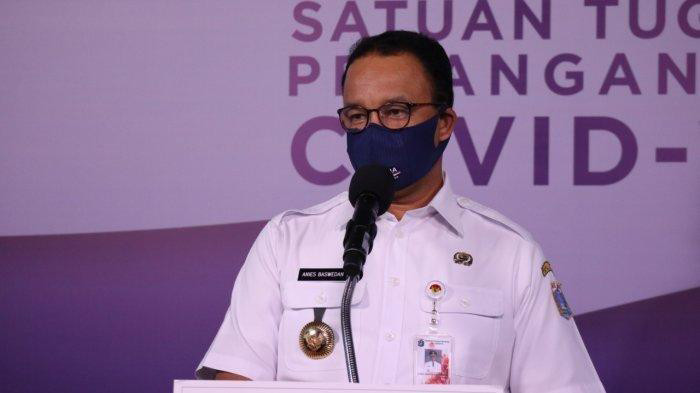Popular Reads
Top Results
Can't find what you're looking for?
View all search resultsPopular Reads
Top Results
Can't find what you're looking for?
View all search resultsJakarta returns to transitional PSBB rules
The transitional period will last at least until Oct. 25.
Change text size
Gift Premium Articles
to Anyone
J
akarta Governor Anies Baswedan has once again relaxed large-scale social restrictions (PSBB) in the capital, starting another transitional phase on Monday despite the more than 1,000 new COVID-19 cases confirmed daily.
“We implemented the emergency brake policy [full PSBB] for about a month because the number of cases was increasing out of our control. After the number of new cases became more stable, we started to release the brakes slowly, step by step,” Anies said in a written statement on Sunday.
The transitional period will last at least until Oct. 25.
Anies said the decision was based on the number of daily new cases, the daily mortality rate and the trend of total active cases that has flattened during the past few weeks, as well as the increased hospital capacity for COVID-19 patients.
Jakarta imposed the PSBB policy for the first time in April, mandating that all places of worship remain closed, while malls and markets were allowed to open for shoppers needing to purchase their daily needs and companies were required to get an Industrial Ministry permit to operate.
The infection curve flattened as a result and the administration began a transitional phase by reopening houses of worship and other public premises in June.
Without the proper implementation of health protocol, however, the numbers of cases and deaths began to rise again, forcing the Jakarta administration to reimpose PSBB measures on Sept. 14.
Critics doubted the effectiveness of the new PSBB period as its new rules were more relaxed than those implemented in April.
Between Aug. 29 and Sept. 11, during the transition period, Jakarta recorded 14,155 new positive cases or a 37.09 percent increase from the previous two-week period.
The number of cases kept increasing: From Sept. 11 to 25, there were 16,606 new cases or a 31.74 percent increase, while between Sept. 25 and Oct. 9, there were 15,437 new infections or a 22.39 percent increase.
During the transitional period, workplaces in 11 essential industries — including health, food, energy, communications, finance, logistics and daily needs retail — will be allowed to operate at full capacity, while nonessential businesses may allow up to 50 percent of their employees to work at the office.
Restaurants will be allowed to serve dine-in customers at 50 percent of their maximum capacity, while houses of worship are also allowed to reopen.
A biostatistics researcher at the University of Indonesia's (UI) School of Public Health, Iwan Ariawan, who has been analyzing data for Jakarta, warned that the new PSBB phase would not be effective if the proportion of people staying at home did not reach the desired 60 percent to suppress transmission.
The government would have to ensure that at least 85 percent of the people who do not stay at home wear face masks, wash their hands frequently and practice physical distancing.
“If things continue the way they’re going now, [the PSBB transition] won’t be enough. There need to be stronger efforts in communicating and raising people’s awareness, as well as in enforcement,” he said.
Anies said that during the new transitional PSBB, businesses that were allowed to open must record each visitor in a physical or digital guest book to assist in contact tracing of positive cases.
The visitor data that must be recorded includes names, phone numbers, identity card numbers (NIK) as well as the time of their visit. The data must be handed over to the Jakarta administration regularly.
Businesses must also prepare a COVID-19 safety plan with further protocols to be regulated by the relevant city agencies.
“Every resident is responsible for participating in efforts to prevent COVID-19 transmission,” Anies said.
“If one place is not disciplined, the whole city will bear the consequences.”










